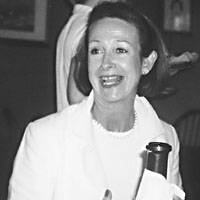KEELE, England -- The university in Keele in the English Midlands is only 42 years old. Before 1962, it was the University of North Staffordshire, itself a youthful, postwar institution. The programs put into place at the University of Keele turned away from specialized single degrees in favor of bridging the divisions among branches of study.
Not so long ago a visiting lecturer from Japan, Yoshikazu Uehata, initiated short home-stay arrangements for students from Japan at Keele. Now a group from Kyoto University spends two weeks here in the spring, and a group from Daito Bunka comes each summer. "They come with great trepidation," said Elizabeth Gardiner, administrator in the English-language unit at Keele. "They fly from Japan, are bused from the airport to the university, and at once go off to host families. We have to be sure that the people they go to are very good, very kind."
Elizabeth has several responsibilities in the English-language unit. For the spring and summer groups from Japan, she is host coordinator. Her work, she says, keeps her on her toes. "I find the hosts through advertisement and by word of mouth," she said. "I visit them, and make sure they meet the criteria set by the British Council, since we are accredited by the British Council. I go back to my office and match up what we are told about the likes and dislikes, hobbies and interests of the incoming students with those of the hosts. Everything is confidential. We've developed a good rapport with some hosts who have been with us for several years. This year we have some new host families, at least another five."
Elizabeth came to Keele half a dozen years ago. "I am a Lancashire girl," she said. "From school I went into hairdressing. I married, had three children, and spent several years being a hairdresser and bringing up children. I decided to change direction. I had the wonderful illusion that instead of always having wet hands, I could be a prim and proper secretary, returning home at the end of each day still prim and proper. I retrained in business management."
Moved into administration, Elizabeth worked in a variety of establishments. She continued in Lancashire even after buying a house in a village not far from Keele but at some considerable distance from Lancashire. "I commuted by car for a few months until I had enough of that," she said. She applied to the University of Keele, and received her appointment to the English-language unit.
At the beginning, she initiated the programs for the Japanese student visitors. "Now," she said, "I am supposed to be involved only with the hosts and the students, ensuring that host families fit the students. Some students stipulate they would like to be on their own with their hosts. Others prefer not to be alone."
She described the prepared courses for the students as "quite intense." She said, "They pack a lot into a short space of time. They have day trips and half-day trips. They like Liverpool with its Beatles associations, Chester and York for their histories and beauty, Nottingham for Robin Hood. The students have to produce presentations on subjects of their own choice. They must question things. Their marks go back to their own universities." Typical subjects chosen for study cover British pubs, garden space, pop stars and food. "And fashion," Elizabeth added. "The students are fascinated with the Western world of clothes."
She notes that although for the most part Japanese students on arrival are timid and shy, they quickly blossom and gain confidence. "They have to go out and ask people questions, and that is a learning situation for them. I think we do a lot in two weeks. It's a tight program for the students, and they have to work very hard. They seem to enjoy their time here thoroughly, and get an awful lot from it. And the hosts love having them."

















With your current subscription plan you can comment on stories. However, before writing your first comment, please create a display name in the Profile section of your subscriber account page.